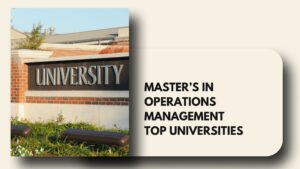- Australian vocational courses offer the fastest route to permanent residency in 3.5 to 5 years, without employer sponsorship or corporate job offers.
- Top PR pathways in Australia, like Cookery, Early Childhood, Automotive, Construction & Aged Care, lead to migration in 12–24 months with work.
- Regional areas in Australia award 15 bonus points for PR applications and process visas faster with less competition than Sydney or Melbourne.

The vocational education system offers practical pathways for international students in Australia seeking skilled qualifications and migration opportunities. These industry-focused programmes combine hands-on training with direct employment prospects, creating clear routes through Australia’s skilled occupation framework.
In this blog, we will explore five vocational courses in Australia. With strong migration prospects, compare institutional costs and visa pathways.
Understanding Vocational Education and PR Pathways in Australia
Australian vocational qualifications (Certificate III to Advanced Diploma) span 6-24 months and integrate work placements, apprenticeships, and industry projects directly into coursework.
Three Main Visa Pathways
- Subclass 189 (Skilled Independent)
Independent migration for MLTSSL occupations (212 available) without state sponsorship. - Subclass 190 (Skilled Nominated)
Requires state nomination (+5 points) for MLTSSL and STSOL occupations (215 available). Applicants commit to living in the nominating state for 2+ years. - Subclass 491 (Skilled Work Regional)
5-year provisional visa for regional areas (+15 points) covering MLTSSL, STSOL, and ROL occupations (77 available).
The key to PR eligibility lies in whether your occupation appears on the Medium and Long-Term Strategic Skills List (MLTSSL) — Australia’s official list of occupations identified as being in national long-term demand.
Top 5 Vocational Courses in Australia Leading to PR
Five career-focused training pathways that connect vocational education with Australia’s skilled migration opportunities.
1. Commercial Cookery (Chef Pathway)
Duration: 12–24 months (Certificate III → Certificate IV/Diploma)
Core Training:
Menu planning, food safety, kitchen supervision, and hospitality management with 288–400 hours of practical placement.
Migration Pathway
- Occupation: Chef (ANZSCO 351311) – MLTSSL listed
- Eligible Visas: Subclass 189 (Independent), 190 (State Nominated), 491 (Regional)
- Skills Assessment: Through Trades Recognition Australia (TRA) via the Job Ready Programme (1,725 hrs paid work / 12 months)
Popular Institutions & Fees
| Institution | Course | Estimated Annual Fee (AUD/INR) |
|---|---|---|
| TAFE Queensland | Cert III in Commercial Cookery | $17,925 (₹10.3L) |
| William Angliss Institute (Melbourne) | Cert III in Commercial Cookery | $21,000 (₹12L) |
| TAFE NSW | Cert III in Commercial Cookery | $19,040 (₹11L) |
2. Early Childhood Education (Educator Pathway)
Duration: 18–24 months (Diploma Level)
Core Training:
Child development, health & safety, curriculum design, and supervised practicum (240 hours minimum).
Migration Pathway
- Occupation: Early Childhood (Pre-Primary School) Teacher (ANZSCO 241111) – MLTSSL listed
- PR Eligibility: Requires a Bachelor’s degree (Diploma insufficient for MLTSSL pathway)
- Visa pathway: The 189 and 190 visas require positive skills assessment with a Bachelor degree.
- Skills Assessment: ACECQA (changed from AITSL in December 2024)
Popular Institutions & Fees
| Institution | Course | Estimated Annual Fee (AUD/INR) |
|---|---|---|
| TAFE SA | Diploma of Early Childhood Education & Care | $13,700 (₹7L) |
| TAFE NSW | Diploma of Early Childhood Education & Care | $13,400 (₹7L) |
| Chisholm Institute | Diploma of Early Childhood Education & Care | $16,635 (₹9.6L) |
3. Automotive Technology (Mechanic Pathway)
Duration: 24–36 months (Certificate III → Certificate IV)
Core Training:
Engine systems, transmission, diagnostics, and hands-on training in mechanical and electronic components with 360–400 hours of vocational placement.
Migration Pathway
- Occupations:
- Motor Mechanic (General) – ANZSCO 321211
- Diesel Motor Mechanic – ANZSCO 321212
- Eligible Visas: Access to 189, 190, and 491 visas.
- Skills Assessment: TRA Job Ready Programme (1,725 hrs / 12 months)
- Licensing: State registration may be required post-training.
Popular Institutions & Fees
| Institution | Course | Estimated Annual Fee (AUD/INR) |
|---|---|---|
| TAFE SA | Cert III in Light Vehicle Mechanical Technology | $18,135 (₹10.3L) |
| TAFE NSW | Cert III in Automotive Mechanical Technology | $17,530 (₹10L) |
| Kangan Institute | Cert IV in Automotive Technology | $8,820 (₹5L) |
4. Construction Trades (Carpentry & Electrical)
Duration: 24–48 months (Certificate III)
Core Training:
Practical site work, blueprint reading, safety codes, timber framing, or electrical installation with apprenticeship placements or structured training.
Migration Pathway
- Occupations:
- Carpenter (ANZSCO 331212)
- Electrician (General) (ANZSCO 341111)
- Eligible Visas: Access to 189, 190, 491 visas.
- Skills Assessment: TRA Job Ready Programme (1,725 hrs / 12 months)
- Licensing: Mandatory state electrical or building licence required post-training.
Top Training Providers & Fees
| Institution | Course | Estimated Annual Fee (AUD/INR) |
|---|---|---|
| TAFE SA | Cert III in Carpentry | $36,105 (₹20.7L) |
| TAFE NSW | Cert III in Carpentry | $19,490 (₹11.2L) |
| North Metropolitan TAFE | Cert III in Electrotechnology Electrician | $23,500 (₹13.5L) |
5. Aged Care & Community Services (Employer-Sponsored Pathway)
Duration: 12–18 months (Certificate III → IV)
Core Training:
Person-centred care, health support, dementia care, and supervised clinical placements.
Migration Pathway
- Occupation: Aged or Disabled Carer (ANZSCO 423111) – Not on MLTSSL/STSOL/ROL
- Pathway Available: Aged Care Industry Labour Agreement (ACILA) via employer sponsorship.
- Eligible Visas: 482 (Temporary Skill Shortage) & 186 (Employer Nomination Scheme)
- Skills Assessment: Through Community Work Australia (for ACILA)
- Alternative PR Path: Registered Nurse (Aged Care) – ANZSCO 254412 (Bachelor’s required).
Leading Institutions & Fees
| Institution | Course | Estimated Annual Fee (AUD/INR) |
|---|---|---|
| TAFE NSW | Cert III in Individual Support (Ageing) | $10,500 (₹6L) |
| South Metropolitan TAFE | Cert IV in Ageing Support | $13,000 to 17,000 (₹7.5-9.8L) |
| TAFE Queensland | Diploma of Community Services | $16,000 (₹9.2L) |
Understanding the Points System for Australian PR
To apply for Australian PR, you need to score points based on factors like age, education, English proficiency, and work experience. The government requires a minimum of 65 points just to submit your application.
However, having 65 points doesn’t guarantee you’ll get selected. In reality, most students who successfully receive PR invitations have scored 80-95+ points because there’s high competition for popular jobs like chefs, mechanics, IT professionals, and accountants. Think of it like a college admission cutoff—the minimum score is 65, but the actual cutoff is much higher.
Key Takeaways
Vocational education in Australia offers one of the most direct routes to permanent residency. By completing a Certificate III or Diploma in an in-demand trade such as Cookery, Carpentry, Electrical Work, or Automotive Technology, students gain both practical training and industry-recognised qualifications. After around a year of paid work and successful skills assessment, graduates can apply for PR through the 189 (Independent), 190 (State Sponsored), or 491 (Regional) visa pathways—typically achieving PR eligibility within 3.5 to 5 years. Unlike many professional fields, these trade-based courses provide a self-sufficient pathway to migration without employer sponsorship, while regional study further boosts PR points and job opportunities.
Start your journey toward an Australian vocational qualification and PR pathway. AdmitX provides end-to-end support from course selection to visa approval. Our services include:
- University Selection Guidance
- SOP Review
- Study-Abroad Document Templates
- Free IELTS Bootcamp Course
- Scholarship Assistance
- Visa Support Services
And much more!
Book your free study abroad counselling session with our experts today!
FAQs
Which vocational course offers the fastest pathway to Australian PR?
Commercial Cookery provides the quickest route, requiring 12-24 months of study plus 1,725 hours of paid work experience.
How much do vocational courses cost at Australian TAFE institutes?
TAFE vocational programmes range from $8,500 to $36,105 annually depending on the course and institution across Australia.
Do I need employer sponsorship for PR after completing a vocational course?
Trade qualifications like Chef, Electrician, Carpenter and Motor Mechanic allow independent PR applications through skilled migration without requiring employer sponsorship.
How many points do I realistically need for Australian PR in 2025?
65 points is the minimum requirement, but successful applicants typically score 85-95+ points.
What is the total timeline from starting a vocational course to receiving Australian PR?
The complete journey to PR approval typically takes 3.5 to 5 years, including study and work experience.
Which Australian states offer the easiest pathways for vocational graduate PR?
Most TAFE vocational programmes require IELTS Academic 5.5-6.0 overall with no band below 5.0-5.5, though requirements vary by course and institution.
Which Australian states offer the easiest pathways for vocational graduate PR?
South Australia, Tasmania and Northern Territory provide more accessible state nomination opportunities with lower points requirements for PR.
Do vocational graduates earn less than university graduates in Australia?
Qualified tradespeople like Electricians and Carpenters typically earn $70,000-$90,000 annually, often matching or exceeding many university graduate starting salaries.
Can I switch to a different occupation after completing my vocational qualification?
No, your PR application must match the occupation you studied for, but you can switch careers after getting permanent residency.
How long does the TRA skills assessment process take after completing vocational training?
The TRA skills assessment takes about 12 months after your vocational training, as you must complete 1,725 hours of paid full-time work in your trade.
If you are an aspirant looking to study at your dream university, book an appointment with AdmitX today and start your applications early to avail yourself of all the benefits.
















